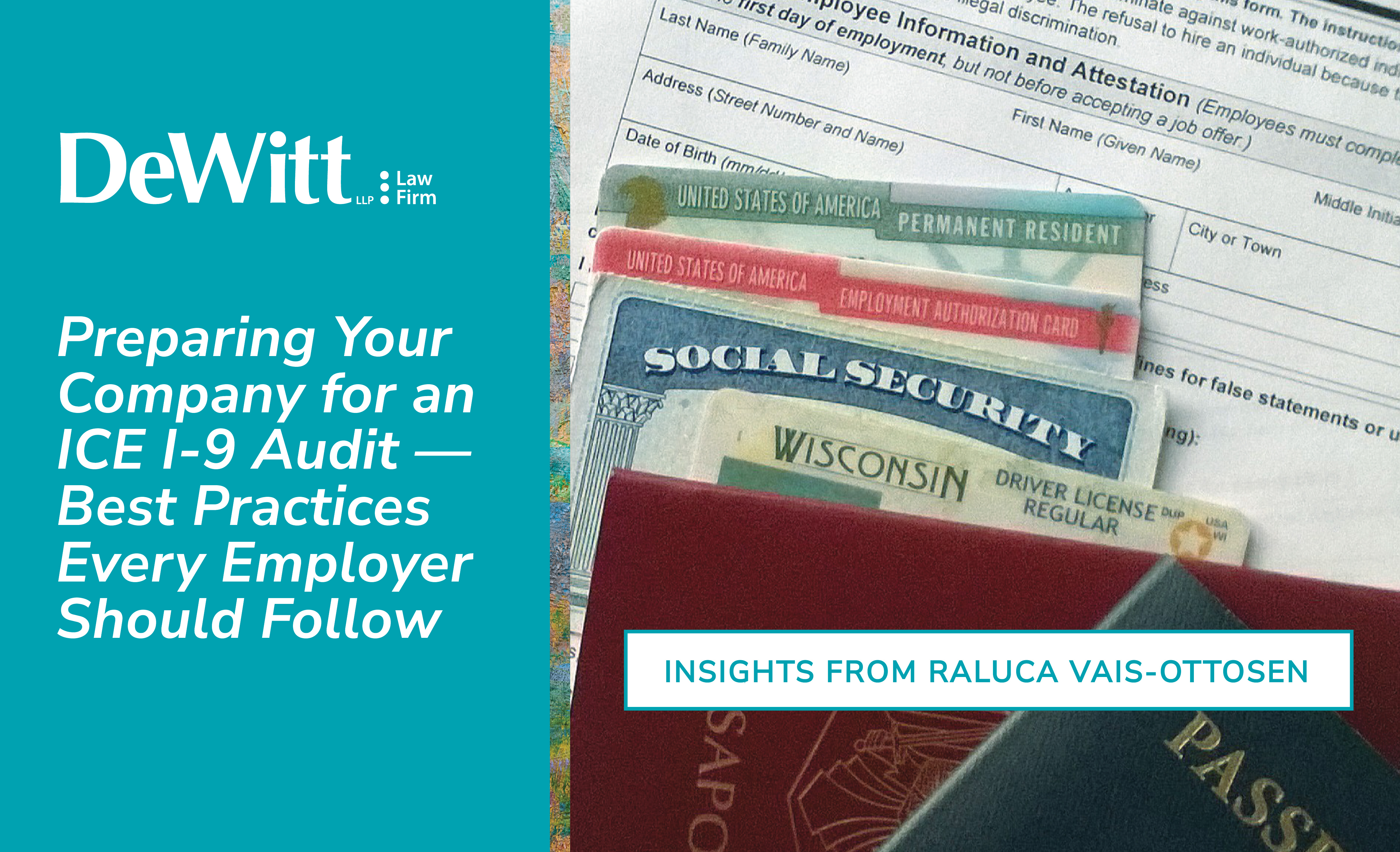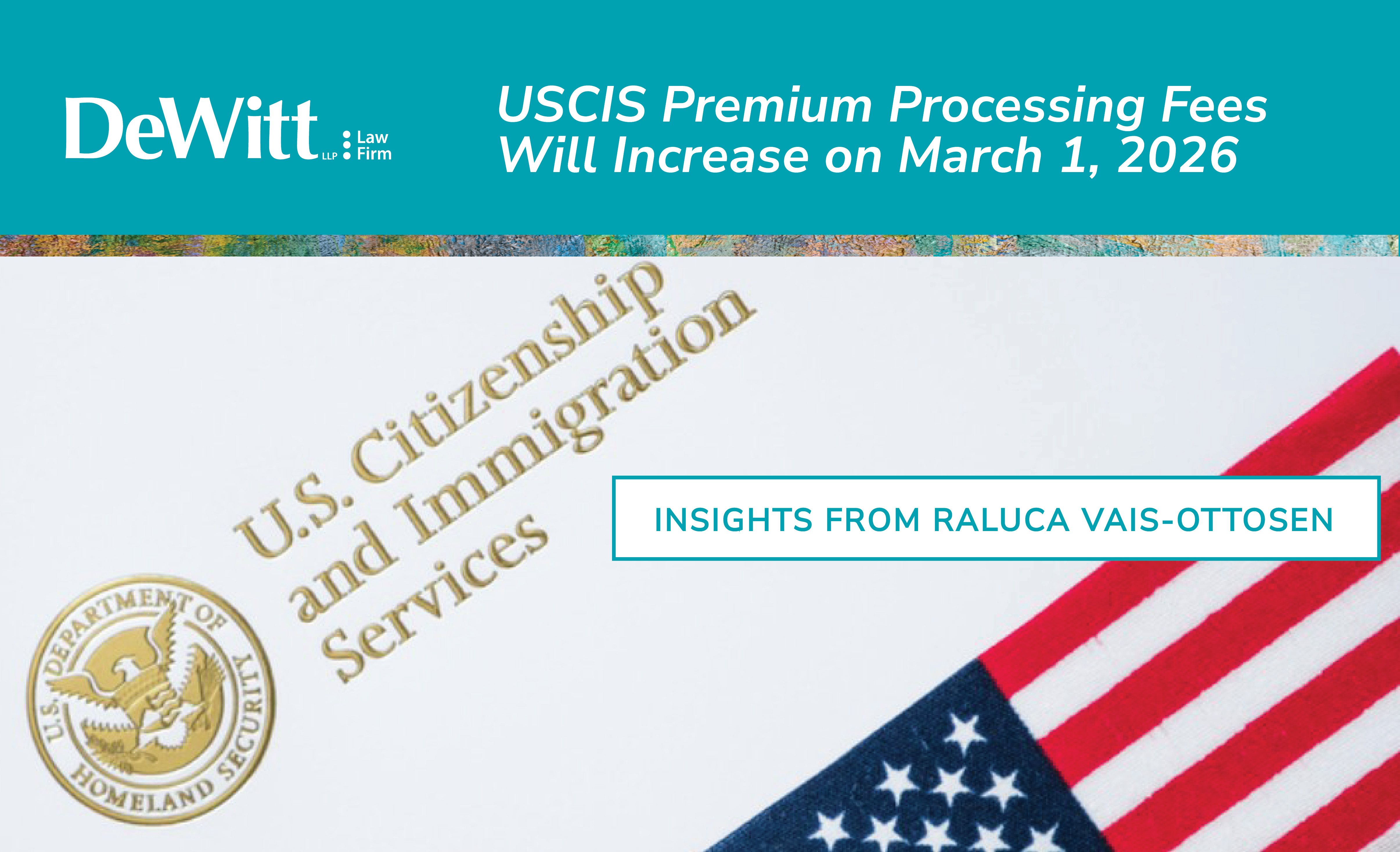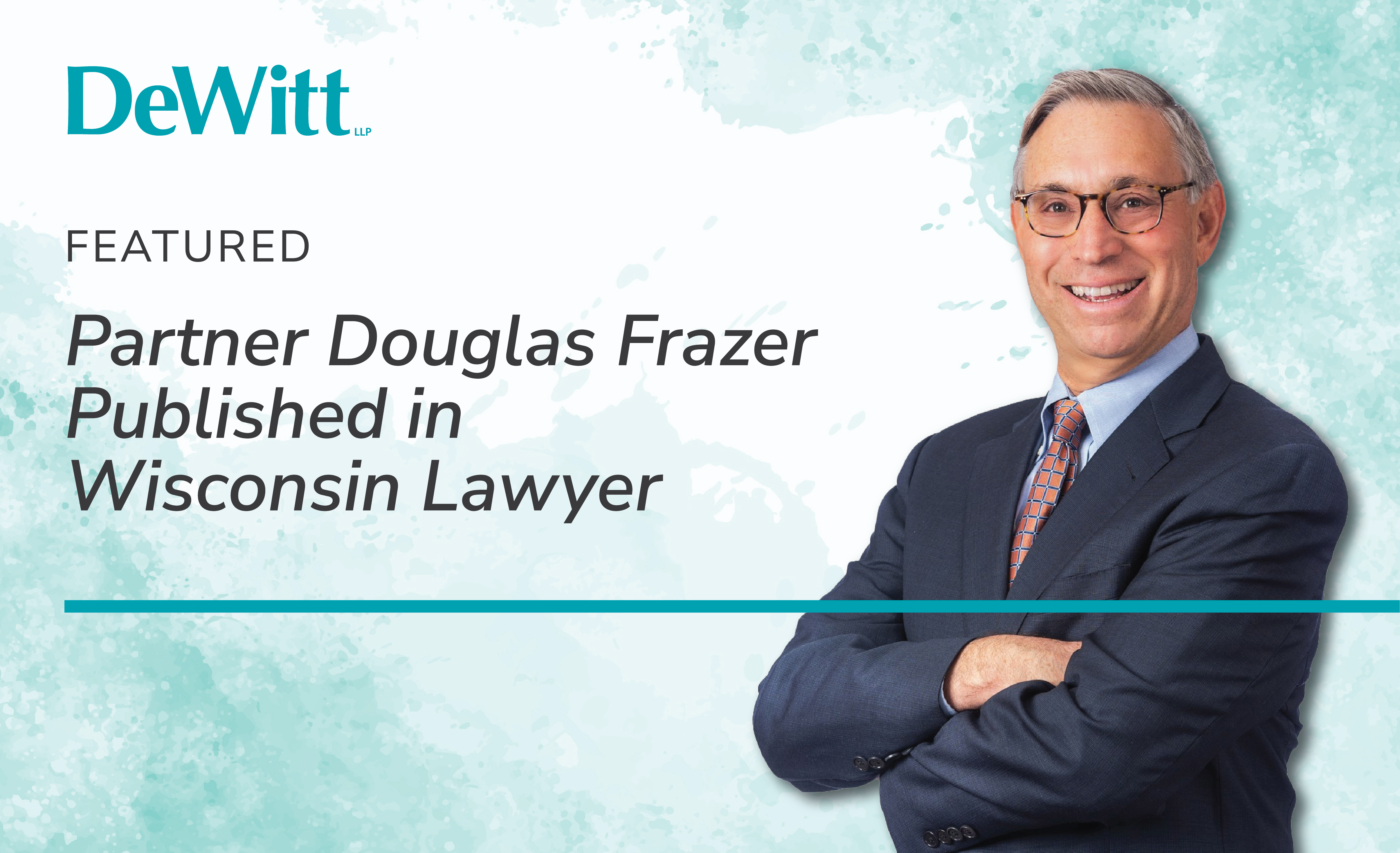
Labor Employment Services | DeWitt LLP
Our labor and employment attorneys work with organizations nationwide to navigate changes in employment and labor law, develop effective human resource policies, and make informed employment decisions. We strive to help our clients avoid unnecessary employment litigation by taking a proactive approach. However, if litigation does arise, we aggressively defend our clients before administrative agencies, state, and federal courts. Additionally, we provide guidance to clients at every stage of the litigation process, from the initial complaint to the final appeal. Our goal is to position our clients to resolve litigation on their terms, in a way that aligns with their priorities and litigation philosophy, as our clients have noted.
We understand that for certain matters, a flat rate or alternative billing arrangement may be more suitable than the traditional billable hour model. Therefore, we frequently collaborate with our clients to establish billing arrangements tailored to each specific situation. Examples of flat fee services we have provided include employment policies, independent contractor agreements, non-compete agreements, EEOC position statements, and background screening consent forms.
Our labor and employment attorneys have extensive experience in a variety of practice areas, including background screening practice advice and defense, collective bargaining advice and support, discrimination, retaliation, and harassment defense, employee handbook advice and creation, human resources and employment law training, I-9 and immigration counseling, and independent contractor counseling and defense.
We have counseled numerous employers on developing and implementing sound background screening policies, addressing legal requirements surrounding criminal history and credit information, and defending against criminal conviction and arrest discrimination cases. Our attorneys assist unionized clients in navigating the complex realm of labor law, including negotiating collective bargaining agreements, handling grievances, and addressing National Labor Relations Board issues. In discrimination, retaliation, and harassment cases, we provide robust defense before administrative agencies and state and federal courts, drawing on our extensive experience in Title VII, ADEA, ADA, ADAAA, GINA, EPA, and various federal and state laws.
Employee handbooks are a critical component of a strong HR department, and our attorneys have reviewed countless handbooks for companies of all sizes. We help identify and address potential issues, recommending policy updates or rewrites to prevent internal complaints and lawsuits. We frequently revise provisions related to vacation and paid time off, FMLA, employee background screening, hours worked and overtime, anti-nepotism, anti-discrimination, harassment, and retaliation, computer and driving policies, progressive discipline, workplace alcohol and drug use, outside employment, bulletin board usage, disability accommodation, unpaid leave, holiday pay, I-9 compliance, and at-will employment.
To minimize the risk of employment litigation, it is crucial for companies to establish sound policies, regularly update them, and train staff on their implementation. Our labor and employment attorneys offer training on a broad range of topics, including COVID-19/pandemic-related issues, discrimination and harassment prevention, background screening programs, protection of confidential information, restrictive covenants, employee discipline, accommodation and leave issues, wage and hour compliance, OSHA, termination procedures, employee classification, workplace investigations, union avoidance, and current employment law issues. We customize our training sessions to ensure engagement and practical applicability and are available to present virtually or in-person based on client preferences.
Given the increasing importance of I-9 compliance, our attorneys can provide training to HR personnel, review existing I-9 records for compliance with federal regulations, and guide clients through governmental audits. Misclassifying individuals as independent contractors can have serious legal consequences. We have worked extensively with clients across various industries to proactively address this issue, assisting in contract preparation, strategic planning, business practice analysis, and staff training to ensure proper classification. Our attorneys have successfully defended clients in governmental audits and litigation across multiple states.
A significant portion of our practice centers around major industries such as transportation and trucking. Our attorneys have advised trucking companies on various employment issues, becoming a trusted resource for labor and employment legal advice in this field.
For a more detailed explanation of how we work with employers on various types of employment or labor matters, and in certain industries, please click on the items below.
Areas of Service
Alternative Fee Arrangements
For some matters, a flat rate or alternative billing arrangement may be more appropriate than the standard billable hour approach. Accordingly, we regularly partner with our clients to develop billing arrangements that make the most sense for a particular situation. For example, we have previously worked with our clients to establish flat fees for such things as employment policies, independent contractor agreements, non-compete agreements, EEOC position statements, and background screening consent forms.
More Info
Learn More About DeWitt's Labor and Employment Relations Services
If you would like more information on our Labor and Employment Relations team please contact info@dewittllp.com.








